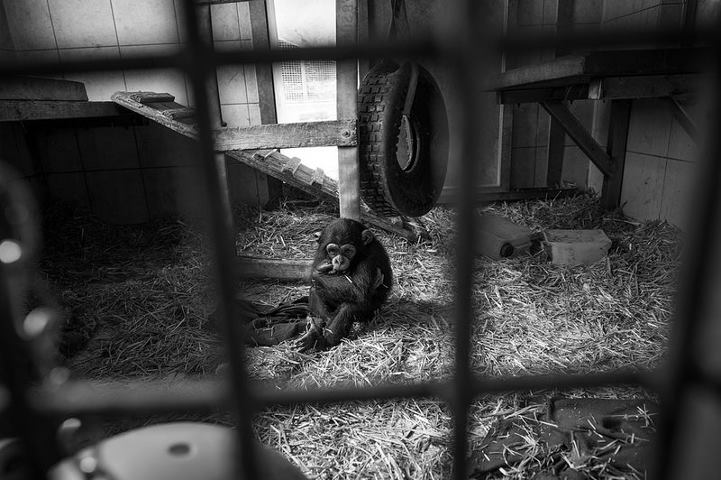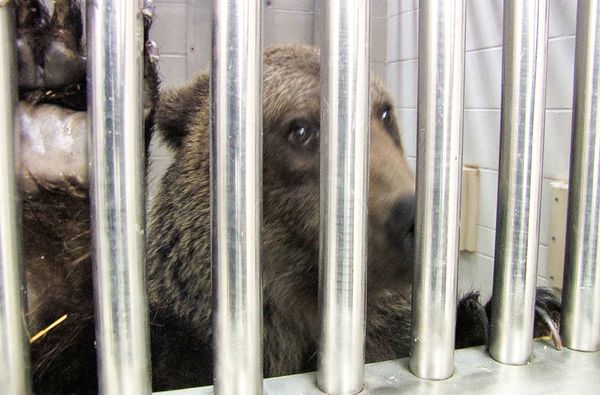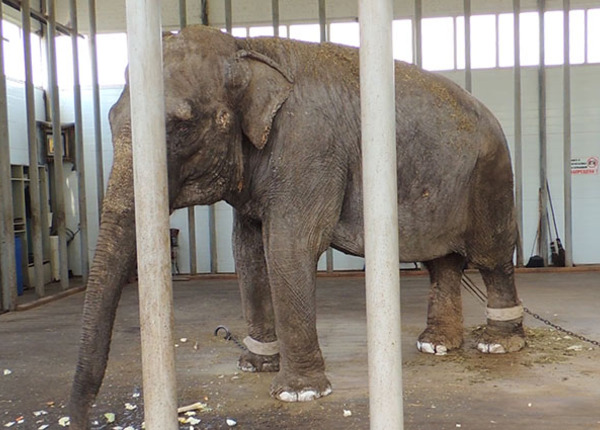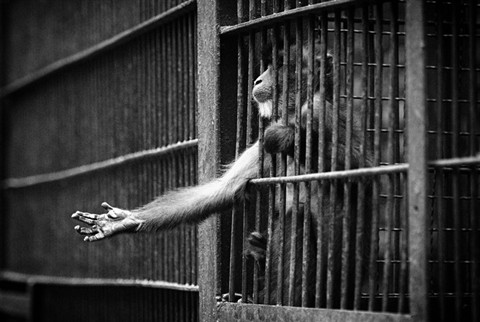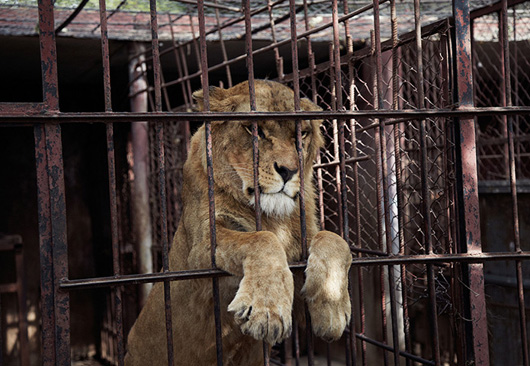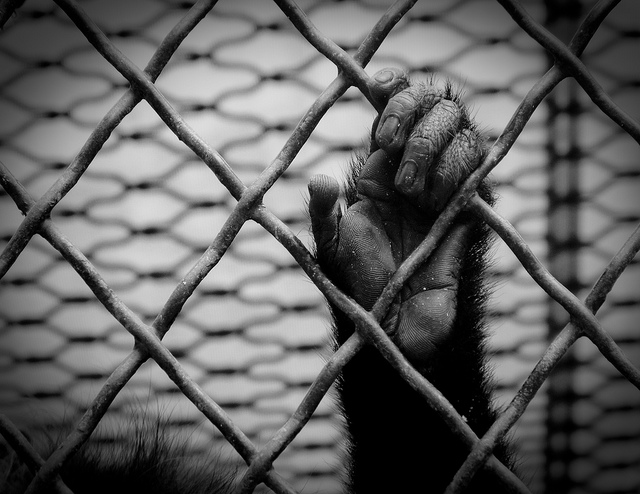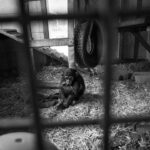The Chains That Bind
Humanity Has So Much To Answer For
The Chains That Bind – If humans cherish freedom why do so many animals live in slavery? The answer lies in a deep seated prejudice that many humans display towards other species. It is ironic that as Western society becomes increasingly liberal and tolerant, this deep rooted discrimination – this pathological cruelty – shows no signs of abating.
Guest Writer
Mark Stewart
Indeed, if anything the antipathy is becoming ever more pronounced as factory farms accelerate their output to keep up with human appetites. When society decides to punish criminals the transgressors are sent to prison and deprived of their freedom. Some animals are punished in this fashion from birth: the veal calf imprisoned as soon as it is born, a scenario recently depicted in a Facebook image that will stay with me for the rest of my life, the poor creature literally dragged from its mother’s birth canal and tossed aside like a sack of rubbish. What must pass through the mind of any creature placed in such a position? How must they view their captors? Their tormentors?
Along with captivity comes isolation, sensory deprivation and malnutrition, even starvation. Inevitably this leads to physical and psychological trauma. Amongst the most heart-breaking images of captivity are those which depict large creatures such as bears and whales imprisoned in concrete pens. Confronting these images provokes a visceral shock, a powerful urge to turn away and look elsewhere. Several of these images have become unshakeably lodged in my mind. I often think about the images when faced with some personal difficulty in my own life: If the bears can go through that every day, then I can deal with my own setbacks and challenges, because my troubles are nothing, absolutely nothing, by comparison.
I have yet to see any enclosure, even in the most spacious wildlife park, that is big enough for the animal it contains and confines, that adequately duplicates the savannah or the prairie or the open ocean. Misery is often defined by the absence of freedom. It is precisely this condition in which many animals live, and one to which the majority of the human population turns a collective blind eye. I don’t see the sheds and the pens and the tanks and the cages. I don’t hear the screams, and the cries and the whimpering.
For those of us who can see, smell and hear the many bloody dimensions of human cruelty, a special loathing must be reserved for the animal experimentation labs and for those who frequent them, for these latter-day Mengeles’ and Goeths’. My good friend and fellow animal champion Rosemary Wright often uses a striking phrase in her web-posts when commenting on Man’s inhumanity towards his fellow creatures: The soul of humanity is very badly tarnished. I would go further and say that, while such places exist, humanity has no soul at all. And no collective future.
Towards the end of the Second World War, the Allies liberated concentration camps located near towns and villages. Many of the towns’ people claimed not to know about the existence of the camps; they were subsequently forced by the Allies to walk through these charnel houses, to confront the horror first hand.
Animal concentration camps are called slaughter houses and people devour their products. Animal prisons are called zoos and people flock to them for entertainment. So much for humans caring about slavery and imprisonment. Movie director Steve McQueen literally jumped for joy on receiving his Oscar for 12 Years A Slave. The accolade was well deserved but it is unlikely that McQueen or any other mainstream director will ever turn their attention to the most widespread form of slavery, namely the incarceration and abuse of animals.
It just isn’t a trendy enough theme for an adult audience. Such “sentimentality” is restricted to what are perceived by many as kid’s movies, such as Free Willie, or Babe. It is the entertainment industry’s version of selective compassion. You can see it on TV in adverts that feature animal puppets such as meerkats, which are immediately followed or preceded by ads for fast food. It is inconsistent to trumpet the evils of human slavery while disregarding the same evils which afflict so many other creatures.
It is perhaps asking too much to expect the Hollywood crowd, surely the most disconnected element of the celebrity culture, to notice anything non-human. That would take the vision of a truly talented film maker such as Louie Psihoyos (The Cove) or Shaun Monson (Earthlings). Many of us will know the rallying cry of the animal liberation movement: When every cage is empty.
For this goal to be achieved the zoos and the pet shops and the animal experimentation labs and the factory farms must close. We can break the chains that bind if enough of us turn away from meat and dairy products; if enough of us stop visiting zoos and buying products that have been tested on animals. When that day comes, I too will jump for joy and celebrate the true end of all forms of slavery.
Mark Stewart
December 2014

